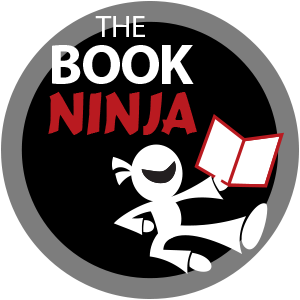Who is the target audience for your book? I am still amazed at the number of authors who answer, “Everyone.” Admit it. Most of us authors write a book thinking everyone is going to love it, or at the very least want to read it. Unfortunately for us (or fortunately, depending on how you feel after reading this article), that is rarely the case.
 The fact is, no matter how general or broad your topic may be, it still has a specific audience. Take one of my titles, Financial Survival: Practical Ways to Save Money for example. By the title alone, you may be thinking what others have told me, “Sounds like a book everyone will want!” However, I’ve been testing the market and find that to not be true. I have come across five different types of audiences in my own book’s marketing, only one of which is the true audience for its message. And you may be surprised just how small that audience is!
The fact is, no matter how general or broad your topic may be, it still has a specific audience. Take one of my titles, Financial Survival: Practical Ways to Save Money for example. By the title alone, you may be thinking what others have told me, “Sounds like a book everyone will want!” However, I’ve been testing the market and find that to not be true. I have come across five different types of audiences in my own book’s marketing, only one of which is the true audience for its message. And you may be surprised just how small that audience is!
The Denier
The Denier is one who may admire your accomplishment and need the message within your book, but refuses to acknowledge the book is for them.
For instance, when I have had a conversation with Deniers, they will spend much of the time complaining about their financial situation. When I bring up my own struggles, what my family has been through, and how we’ve dealt with it (typically leading to an introduction of my book), they will pat me on the back for my accomplishment, but make some excuse that the message isn’t for them.
The interesting thing about the Denier is that you can mention to them a need for someone else in their lives that would be fulfilled by the content in your book (e.g., one of their children or friends) and they will eagerly buy it for that other person. Despite their own financial problems, in my experience, they are more likely to see a solution in my book for a loved one rather than themselves.
The Denier is not without hope as an audience for your book. They just take more convincing. In my case, a few of them have bought the book for others, then come to me later and told me they liked it so much they decided to keep it and buy another copy for their loved ones—the ones they initially bought the first copy for. By presenting to them a need of another or continually encouraging them, you can still market your book to the Denier.
The Professional
The Professional is the self-proclaimed “know-it-all” of your book’s topic. This person may not work in the industry your book addresses, but they still believe they know more about your book’s content than you do.
In the life of my own book, this person has taken the form of financial “experts,” “professional” reviewers, and others who deem themselves qualified to judge the book I wrote. Typically, this group has rejected my book outright. And it is clear, especially from the “professional” reviewers, that they couldn’t see past the first part of the title that the book is about Practical Ways to Save Money, not “expert” financial advice.
Some have even taken extra measures to undermine my credibility as its author, saying that since I had some financial hardships (losing my job due to the company’s financial problems), they must have been my fault and therefore I have no right to share my experience with others or offer them “advice.” Additionally, the Professionals have let me know that including my own personal story throughout the book is a “waste of space” and “totally inappropriate.”
In my case, my audience is definitely not the Professional. I wrote the book for everyday people who need help getting on their feet. And the interesting thing is, when I speak to groups, my “totally inappropriate” personal story is what sells the book. It has been proven that people want to relate with authors on a more personal level; to know you understand what they are going through. Use that to help find your target audience!
The Accomplished
The Accomplished is the professional who is indeed truly an expert in the field of your book. This audience will typically take a close, objective look at your book’s content and give you honest feedback. You may not always like it, but their delivery will typically be gentle.
In the case of my book, there have been many of the Accomplished who loved the book specifically for the reasons the Professional did not. They are the ones who want me to come speak to their clients, buy books for their seminars as giveaways, or give it objective reviews stressing its more redeeming qualities.
Though this audience may seem incredibly small, having just one Accomplished supporter in your circle is invaluable. They will truly be behind the message of your book and are more willing to support you in the field you’re writing about. The Accomplished are an audience to seek out, as they can catapult your word-of-mouth marketing plan faster than you can alone.
The Dissenter
The Dissenter is the audience you want to steer clear of. These are the people who will ignore your book’s message and stand as far away from it as possible. They flat out disagree with everything you say, even if it is the truth.
For instance, in my book I touch on the consequences of debt—both good and bad. “Debt” has become a word that rubs certain people the wrong way. Just broaching the subject creates conflict with them. When I bring up the point that self-made millionaires didn’t get where they are today by way of debt (as many of my personal millionaire contacts have shared with me), it just makes them mad.
Trying to convince a Dissenter that you speak the truth, no matter if it’s clear as black and white to you, is a waste of precious time you could be spending marketing your book to others. The Dissenter will believe what they want to believe, even when faced with the obvious. They are blind to anything that is not in their own minds.
The Declarer
The Declarer is probably the most valuable audience for you to reach. They are typically the first to buy your book and will often market it for you.
This audience will read your book cover to cover and typically put it to use. If you have a fiction book, the Declarer will recommend it to their friends as a great form of entertainment, but this audience works best for nonfiction. If they put the message of your nonfiction book into action in their own lives, their testimony will be that much more powerful when they are talking with others about it.
If prompted, the Declarer will sell your book for you. In my case, I have three avid Declarers who have sold a lot of books just by their personal testimonials. All three have found my book to be helpful for them—one even found $300 extra per month she didn’t know she had by following some lifestyle changes I recommend. Another recently lost her job and was using methods I used when I lost my job to cope. The third has always had a tight budget, but she has been learning more of how to stick to it. All three combined make a more powerful sales force for me than one member of any other audience, even one of the Accomplished.
The Declarers can be the most powerful audience you will reach. They will buy your book without question, usually without you having to tell them much about it. They are eager to learn and even more eager to share. And their excitement is contagious. It gets others who hear their personal stories interested in the book and wanting to know where they can purchase it. This is the audience to go for first, but they can be hard to find. You will be able to recognize them by their willingness to purchase the book before you have to give your “sales pitch.” They want the book because of its value, and are often convinced simply by the blurb on the back cover. After a while, you will learn to recognize the Declarer and they will become your most powerful word-of-mouth marketing tool.
Though I only mention five types of audiences, there are many “Tweener” audiences. For example, these are the types who may be in between a Denier and a Declarer, yet not fit within any of the other audiences. They may enjoy your book and help promote it, just not to the extreme the Declarer will. By seeking out the extremes of your target audience, your book’s promotion will succeed faster, though many “Tweeners” may take to it and help along the way as well.
In my own experience, everyone could use the lifestyle changes I present in Financial Survival: Practical Ways to Save Money. But as it turns out, hardly anyone is actually open to them. I have discovered that it is human nature to be offended by truth. Since I uphold some hard truths in my book, it has made a lot of people mad (especially self-proclaimed Professionals and Dissenters).
If this happens to you, don’t let it get you down. Instead, congratulate yourself—you just found someone who is not in your target audience and are able to cross them off your list!
***
For an entire training on this subject join The Book Ninja Academy and check out our exclusive training How to Find Your Target Market & Engage Your Fans.
Photo courtesy Shutterstock, Jirsak

